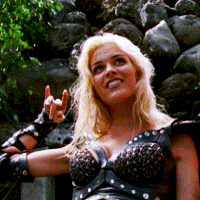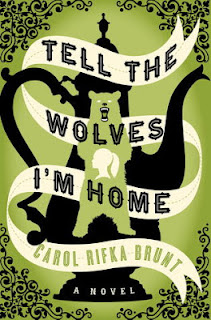I’ve mentioned my library’s 7-Day Shelf before, usually to
bemoan my inability to return books on time; library fines are an actual
line-item in my (mental) monthly budget. (Who has time for a real budget? I’m
too busy spending money I don’t have!)
I did a quick sweep of the 7-day shelf at one point and came
home with this GEM, but I’ll admit to the following mental process:
1) Wow, that cover is really awful.
2) What a terrible title.
3) Pronzini? Ahhhahahah!
4) *reads the first paragraph of the inner flap * Set in Victorian-era San Francisco! Yes, I’m reading this.
I may have been a leeeeetle biased going in. But nothing
prepared me for the accuracy of my first impressions.
 |
| Except vast experience in Being Right, of course. |
Story! Let’s start with John Quincannon, Male Lead, and his
views on his attractive-but-widowed business partner:
“She was not a beautiful woman, but at thirty-one she
possessed a mature comeliness that melted his hard Scot’s heart.”
That, my friends, is what
some assholes call a “neg” – the ostensible compliment that hides a criticism. Also, the descriptor
“Scot” shows up 3 more times in the first chapter, just in case you didn’t
catch it the first time around.
Other things you might have missed because you are
stone-blind and have the mental capacity of a thimble:
- A mental map of 1890-something San Francisco. Don’t worry, this book will provide you with one! “Quincannon walked to Terrific Street, as Pacific Avenue, the district’s main artery, was called, turned into an alley, and entered a large building mid-block.” Good job making me not care at all about your whorehouse scene, Authors, because I’m too busy trying to navigate your commas.
- A definition of American Victorian slang, such as “yegg.”
- Murderous hatpin-using pickpockets
- Sherlock Holmes in the flesh
 |
| Sadly not this flesh. |
Let’s define the word “yegg.” OH WAIT, we can’t, because
unlike other, more obvious words (::cough
bughousecough::) that are used in
context over and over again – and defined on page 245 just in case you missed
it – this one word is never explained.
Moving on to the hatpin-wielding pickpocket. This girl’s MO
is to find a likely-looking victim in a crowd, jab him viciously with a hatpin,
then cut his purse. Okay, I’ll buy that.
But what I will not buy is that your victims wouldn’t know the
difference between an attack of biliousness and a jab with a sharp, supremely
unhygienic object, to the point where a guy would die in short order of what he
thought was a stomach problem. How deep did can one poke a hatpin without
someone noticing blood?
It turns out that Sherlock wouldn’t have been a surprise if
I’d read more than the first paragraph of the bookflap. And to be honest, I’d
probably have put it back; after my experience with Death Comes to Pemberley, I’ve given up on pastiche.
One final quote because I just. can’t. stand it:
“The open-air California Market, known far and wide as San
Francisco’s ‘entrepot of foods,’ ran for an entire block from Pine to
California streets between Montgomery and Kearney.”
Oh good. Next time I’m up there, I’ll be sure to think about
how
everyone in the Middle Ages used to
know what an “entrepot” was. [Spoiler: it’s a trading post.]
The worst part about this book is that the authors have not
only 40+ years of writing experience and 35+ published novels between them, they
also have a Grand Master Award from the Mystery Writers of America. EACH.
You’d think they would know how to set up some tension,
create interesting characters without having to borrow them from somewhere
else, and maybe add a plot twist so that it wasn’t the wife who did it.
Are you kidding me?
THE WIFE?!?
3 of 11 Poorly Plotted Pastiches*
*Don't get all excited, Authors. That third star is only because I got to spend an hour downloading Sherlock gifs.












































